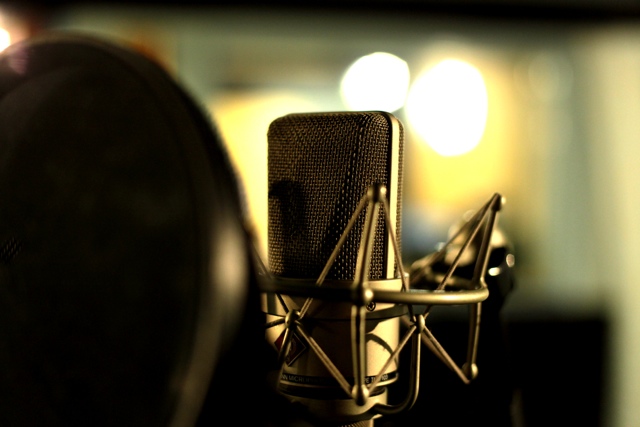Video game dubbing actors prepare to strike developers

Full video game dubbing began relatively recently, but quickly became vital for publishers and developers. The release of the game with high-quality sound in English and as many other languages as possible became a sign of "good form" and an effective tool for increasing sales. For many, games are already integrated interactive entertainment, where pleasure is provided not only by the gameplay and the picture, but also by sound.
But the video game dubbing industry was on the verge of crisis: the SAG-AFTRA union of actors back in 2014 discussed the possibility of a strike, the goal of which is to improve conditions and increase payments to actors, since the cooperation conditions agreed almost 20 years ago are irrelevant. SAG-AFTRA officially announced the start of a strike by its members against gamedev from October 21, posting a notice on the organization’s official website. The main requirement of the trade union is the receipt by the actors of voicing royalties from games sold for more than 2 million copies and the payment of other deductions that will be used to support colleagues.
')
The last major crisis of this kind in the entertainment industry was the massive strike of the United States Writers Guild , which took place almost a decade ago, lasting from November 5, 2007 to February 12, 2008.
Video game developers and we, the strikers, all this time worked together on the terms of a contract that was formulated more than twenty years ago for only the nascent industry. Since then, games have evolved in order to provide a more exciting and cinematic experience that competes in popularity with television shows and big movies in terms of budgets and profits. The industry has reached its maturity and it is time to support and pay for the treatment of professional performers in accordance with the standards and precedents set by many generations before us.
We enlisted the support of fraternal unions around the world, which is reflected in the resolution of the International Federation of Actors, which supported the requirements of SAG-AFTRA and called on all members of their organization to also support us in this matter.
Not all studios boast sales of more than 2 million copies per game, but there are a number of developers and publishers who successfully “milked” the same series from year to year.
The creators of "premium games" for a wide audience tend to make their game the highest quality possible. Some studios, on the basis of their status, simply cannot afford to “score” on dubbing, as they deceive the expectations of their fans. It would seem that developers and publishers should cede to the union.
But the position of SAG-AFTRA is not as strong as that of the Writers Guild in 2007. According to the publishers themselves, the trade union unites no more than 25% of the actors of dubbing and motion capture, which is used for the quality development of the characters. If SAG-AFTRA does not retreat from its intentions, game developers will use the services of other actors, which they directly state. It also indicates the fact that the payment for the dubbing has already reached, on average, $ 100 per hour, and the professional injury in the form of voice loss with the actor happened only once.
Game development studios can be understood. In addition to the cost of creating the game itself and maintaining a considerable staff that would be able to issue a new project from year to year, guaranteeing the success of the title requires huge marketing costs. Owners of game implementation platforms (Microsoft, Sony, Valve) often receive a very significant commission. So one more item of expenses to developers to anything.
Final negotiations should be held this week. Perhaps the developers and the union will be able to agree.
Source: https://habr.com/ru/post/398323/
All Articles